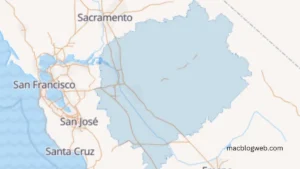The term “Groypers” refers to a group of alt-right activists, provocateurs, and internet trolls who have gained attention for their efforts to influence and radicalize conservative politics in the United States. This article delves into the origins, ideology, key figures, actions, and controversies surrounding the Groypers, examining their impact on the political landscape and societal discourse.
Origins and Ideology
The Groypers emerged as a faction within the broader alt-right movement in the early 2010s, notably associated with their leader, Nick Fuentes. Fuentes, a polarizing figure in far-right circles, gained prominence through his provocative online presence, which includes livestreams, social media engagement, and speaking engagements. The movement takes its name from a variant of the internet meme “Pepe the Frog”, known as “Groyper”, which serves as a mascot of sorts for their activities.
Ideologically, Groypers espouse a blend of white nationalism, nativism, anti-Semitism, homophobia, and xenophobia. They promote ideas rooted in ethnic and racial supremacy, advocating for policies that prioritize the interests of white Americans and oppose immigration and multiculturalism. Their platform is characterized by staunch opposition to mainstream conservatism, which they view as insufficiently nationalist and compromised by liberal values.
Key Figures and Leadership
While Nick Fuentes is widely regarded as the de facto leader of the Groypers, the movement itself lacks a clear hierarchical structure beyond his influence. Fuentes rose to prominence through his commentary on issues such as immigration, cultural conservatism, and opposition to globalism. His charismatic persona and adept use of social media have attracted a dedicated following among disaffected youth and segments of the conservative base disillusioned with mainstream politics.
Other figures associated with the Groypers include Michelle Malkin, a conservative commentator who has aligned herself with the movement. Malkin, often referred to as the “mommy” of the Groyper movement, has provided occasional vocal support and solidarity with their objectives, though her role remains secondary to Fuentes in terms of influence and leadership.
Tactics and Activities
The Groypers are known for their disruptive tactics aimed at mainstream conservative events and figures whom they perceive as insufficiently aligned with their radical agenda. They have engaged in “America First” rallies and protests, seeking to inject their nationalist and anti-establishment rhetoric into public discourse. Their presence at conservative gatherings often sparks controversy and confrontations, as they challenge speakers and organizers on issues ranging from immigration policy to cultural conservatism.
One of the most notable incidents involving the Groypers was their involvement in the January 6 United States Capitol attack. While not exclusively responsible for the events, members of the movement participated in the protests leading up to the storming of the Capitol, aligning themselves with other far-right groups in a display of defiance against the perceived political establishment.
Controversies and Criticisms
The Groypers have faced widespread condemnation and scrutiny for their extremist views and disruptive tactics. Critics characterize them as a hate group promoting bigotry, racism, and intolerance under the guise of political activism. Their association with white nationalism and neo-Nazi ideologies has drawn comparisons to historical fascist movements, raising concerns about their potential for inciting violence and sowing social discord.
Academics and analysts view the Groypers as part of a broader trend within contemporary far-right movements seeking to exploit political polarization and societal divisions. Their use of online platforms to disseminate propaganda and recruit followers reflects a growing reliance on digital media to influence public opinion and mobilize supporters.
Impact on Conservative Politics
The Groypers’ impact on conservative politics in the United States is multifaceted and contentious. While they represent a minority faction within the broader conservative movement, their vocal opposition to mainstream Republican figures has influenced discourse on issues such as immigration reform, trade policy, and cultural conservatism. They have forced conservative leaders to confront internal divisions over ideological purity and the boundaries of acceptable discourse within the party.
Despite their fringe status, the Groypers’ ability to mobilize grassroots support and attract media attention underscores their significance as a disruptive force within American politics. Their tactics have prompted debates about free speech, extremism on social media platforms, and the responsibilities of tech companies in regulating online content.
Response and Countermeasures
In response to the Groypers’ activities, conservative organizations and mainstream political figures have taken steps to distance themselves from the movement. Some have denounced their tactics and rhetoric as detrimental to conservative causes and values, emphasizing a commitment to inclusive and diverse political discourse. Social media platforms have also implemented measures to curb hate speech and misinformation, targeting groups like the Groypers that violate community standards.
Efforts to counter the influence of the Groypers include grassroots mobilization, educational campaigns, and legal measures aimed at combating extremism and promoting tolerance. Organizations dedicated to monitoring hate groups and promoting civil rights have highlighted the Groypers’ activities as part of broader efforts to address hate speech and extremist ideologies in society.
Conclusion
The Groypers represent a provocative and controversial movement within contemporary American politics, defined by their embrace of extremist ideologies and disruptive tactics. Led by figures like Nick Fuentes, they have sought to redefine conservatism through a lens of nationalism, anti-globalism, and racial identity politics. Despite facing widespread condemnation and scrutiny, the Groypers continue to exert influence on public discourse and conservative politics, challenging mainstream narratives and amplifying divisions within the political landscape.
As debates over immigration, cultural identity, and social justice continue to shape political discourse in the United States, the Groypers’ role in these discussions underscores broader concerns about extremism, polarization, and the future of democratic governance. Their evolution and impact serve as a cautionary tale about the challenges posed by radical movements seeking to exploit societal tensions and reshape political agendas in an increasingly interconnected world.








